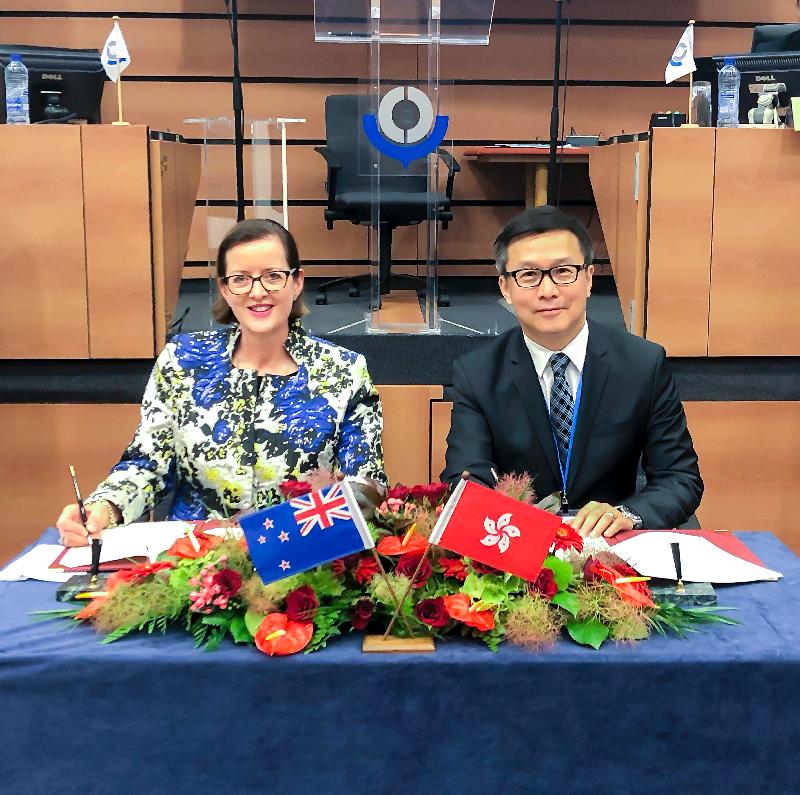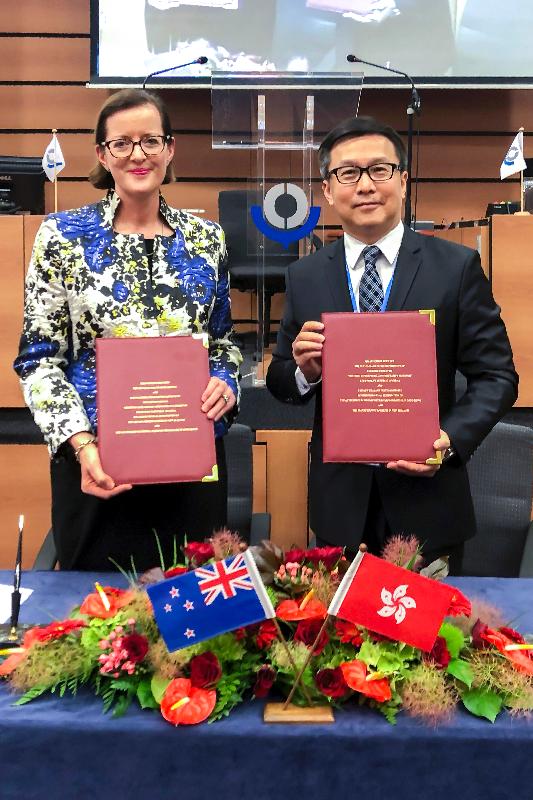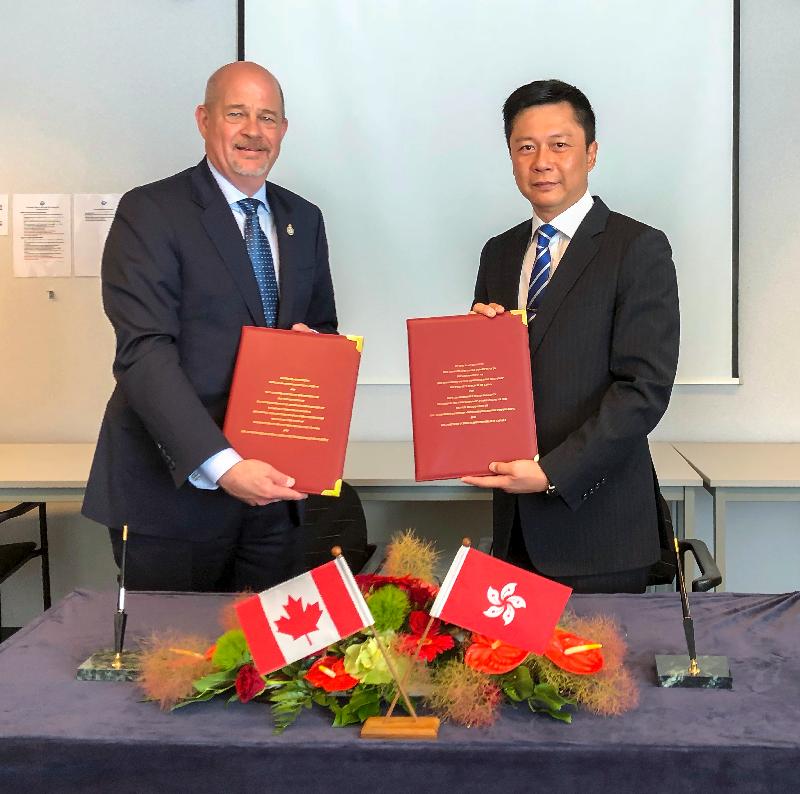LegCo to consider motion under Legislative Council (Powers and Privileges) Ordinance
The following is issued on behalf of the Legislative Council Secretariat:
The Legislative Council (LegCo) will hold a meeting next Wednesday (July 4) at 11.30am (or immediately after the meeting for the Chief Executive's Question Time to be held at 11am) in the Chamber of the LegCo Complex. During the meeting, Members will consider a motion under the Legislative Council (Powers and Privileges) Ordinance.
The motion, to be moved by Ms Claudia Mo, states: "That this Council appoints a select committee to inquire into the incident of one of the layers of steel reinforcement bars in a structural wall in To Kwa Wan station of the Shatin to Central Link being shaved thin, and whether the incident involved ineffective monitoring by the Hong Kong Special Administrative Region Government and the MTR Corporation Limited and their deliberate concealment of the construction scandal, and other related matters; and that in the performance of its duties the committee be authorised under section 9(2) of the Legislative Council (Powers and Privileges) Ordinance (Cap 382) to exercise the powers conferred by section 9(1) of that Ordinance."
Meanwhile, Dr Lo Wai-kwok will move a motion on expediting the promotion of smart city development. The motion states: "That, since smart city is one of the four major areas of focused development of innovation and technology in Hong Kong, the Administration released the Smart City Blueprint for Hong Kong in December 2017, mapping out the policies and measures to be implemented in the next five years in six areas, namely smart mobility, smart living, smart environment, smart people, smart government and smart economy; in this connection, this Council urges the Government to proactively allocate resources to perfect various policies and ancillary measures, so as to expedite the promotion of smart city development; the relevant measures include facilitating the research and development and application of innovation and technology, upgrading the technological infrastructure of Hong Kong, promoting the intellectualisation of infrastructure and green architecture, facilitating the opening of data by public and private organisations for development and application, setting up a platform for sharing big data, making optimal use of innovation and technology for improvement of people's daily living, as well as developing a low-carbon green and smart community, with a view to fostering the sustainable development of Hong Kong and facilitating the people in leading a quality life."
Mr Christopher Cheung, Mr Tony Tse, Mr Alvin Yeung, Dr Elizabeth Quat, Mr Hui Chi-fung and Mr Charles Mok will move separate amendments to Dr Lo's motion.
Dr Fernando Cheung will move a motion on the Report of the Subcommittee on Children's Rights. The motion states: "That this Council notes the Report of the Subcommittee on Children's Rights."
Dr Helena Wong will move a proposed resolution under section 34(4) of the Interpretation and General Clauses Ordinance to extend the period for amending the Food Adulteration (Metallic Contamination) (Amendment) Regulation 2018 laid on the table of the Council on June 13, 2018 to the first sitting of the next session of the Legislative Council.
On government bills, the Evidence (Amendment) Bill 2018 and the Conservation of Antarctic Marine Living Resources Bill will be introduced into the Council for the First Reading and the Second Reading. The Second Reading debate on the Bills will be adjourned.
The Second Reading debate on the Inland Revenue (Amendment) (No. 6) Bill 2017 will resume. If the Bill is supported by Members and receives its Second Reading, it will stand committed to the committee of the whole Council. After the committee of the whole Council has completed consideration of the Bill and its report is adopted by the Council, the Bill will be set down for the Third Reading.
During the meeting, member of the Advisory Committee on Corruption of the Independent Commission Against Corruption Mr Abraham Shek, and the Chairman of the Independent Commission Against Corruption Complaints Committee, Mr Jeffrey Lam, will present the "Independent Commission Against Corruption Hong Kong Special Administrative Region Annual Report 2017" and the "Independent Commission Against Corruption Complaints Committee Annual Report 2017" respectively. They will address the Council on the Reports.
Meanwhile, the Chairman of the Finance Committee, Mr Chan Kin-por, will present the Finance Committee Report on the examination of the Estimates of Expenditure 2018-2019 and address the Council. The Chairman of the Panel on Environmental Affairs, Ms Tanya Chan; the Chairman of the Panel on Security, Mr Chan Hak-kan; the Chairman of the Panel on Development, Mr Tommy Cheung; the Chairman of the Panel on Home Affairs, Mr Ma Fung-kwok; and the Chairman of the Panel on Information Technology and Broadcasting, Mr Charles Mok, will present the 2017-2018 reports of the related Panels and address the Council respectively.
Members will also ask the Government 22 questions on various policy areas, six of which require oral replies.
The agenda of the above meeting can be obtained via the LegCo Website (www.legco.gov.hk). Please note that the agenda is subject to change, and the latest information about the agenda could be found on the LegCo Website.
Members of the public are welcome to observe the proceedings of the meeting from the public galleries of the Chamber of the LegCo Complex. They may reserve seats by calling 3919 3399 during office hours. Members of the public can also watch or listen to the meeting via the "Webcast" system on the LegCo Website.


